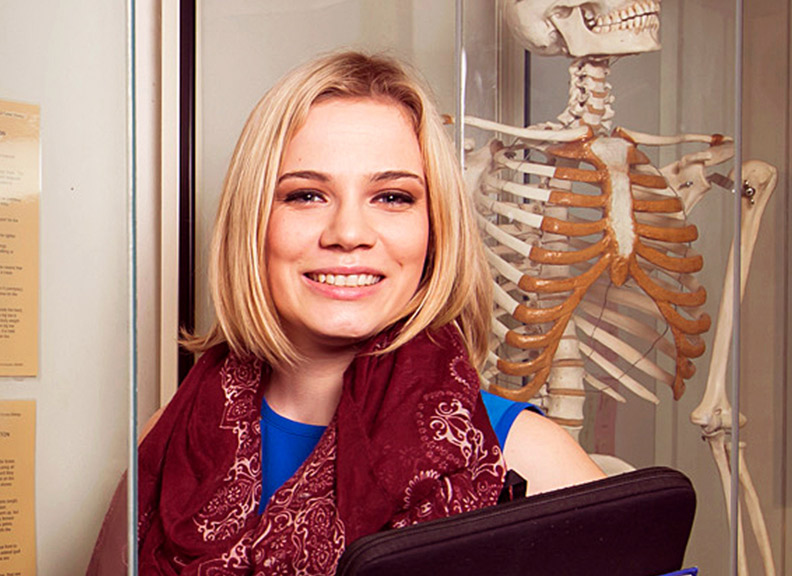Undergraduate
Neuroscience
Contact us
Address
Student Central
The University of Western Australia (M355), 35 Stirling Highway, Perth, Western Australia 6009
Telephone
131 UWA (131 892)
International
(+61 8) 6488 1000
Hours
Frequently asked questions
Events you may be interested in
Show more eventsCareers and further study
This course opens up a world of future study pathways and career opportunities.
Career Pathways
Further Study
Career Opportunities
Potential career opportunities include:
- Medical Technician
- Neuroscientist
- Research Scientist
Fees and scholarships
Domestic Student Fees
For Commonwealth-supported places, student contribution amounts are charged by unit, based on area of study. For a fee estimate, go to the Fee Calculator and select “I want to price my units”. Fees are subject to annual indexation. Refer to the Handbook to identify the units required. More information on how fees are calculated.
Scholarships
Scholarships are available to students from a diverse range of backgrounds, including academic achievement, financial need, educational disadvantage, leadership and community service, artistic or sporting achievements, and being from a rural or remote area.
Cost of living
International Student Fees
Onshore international students are charged an annual course fee, charged per credit point at a rate dependent on the course in which the student is enrolled. Annual course fees are calculated based on an annual study load. Check the handbook to confirm the annual study load for your course.
Find out more about international student tuition fees and visit the fee calculator for the relevant course fees.
Fees are subject to annual indexation.
Scholarships
Scholarships are available to students from a diverse range of backgrounds, including academic achievement, financial need, educational disadvantage, leadership and community service, artistic or sporting achievements, and being from a rural or remote area.
Cost of living
Admission requirements
The University of Western Australia welcomes applications from international and domestic school-leavers. If you’re interested in studying one of these majors, find out the admission details below.
Admission requirements
English competency
English is the language of instruction and assessment at UWA and you will need to meet the English language requirements of the University to be eligible for a place.
Minimum overall IELTS score of 6.5, with no band less than 6.0.
Chemistry / biology requirement
Applicants are recommended to have completed Chemistry ATAR and Biology ATAR / Human Biology ATAR.
International students commencing in semester 2 must have completed Biology ATAR and Chemistry ATAR or equivalent to be admitted.
How to apply
Apply through TISC
- Log in to the TISC website
If you’re a Year 12 student studying a WACE course at a WA high school or a pathway program, you are already automatically registered with TISC. - Select your preferences
You can choose up to six preferences when you apply through TISC. You should list your preferences in order from your most desired course onwards; this way you’ll have plenty of options to get into UWA. - Lodging your application
You’re almost there! After answering a few questions, you’ll need to make a declaration about your application. - Application processing fee
Your TISC application is lodged once you’ve completed the payment. For more information on fees and payments, visit the TISC website.
Course details
About the course
Quick details
- Available
- Perth (Crawley campus)
- Full-time
- Part-time
- On-campus
- Semester 1, Semester 2
- 16-25 hours teaching time, plus your own study time
- Undergraduate
- MJD-NEURS
- 3 years (BBiomedSc), 4 years (BBiomedSc[Hons])
Why study this course at UWA
- You’ll be taught by academics with established international reputations in neuroscience research
- Be involved in the rapidly developing neuroscience research and medical innovations that will improve the lives of people suffering from conditions like spinal cord injuries, muscular dystrophy and Parkinson’s disease
- Neuroscience at UWA can be further pursued with a Neuroscience Honours degree, Neuroscience at Master's level and PhD.
Course Structure
Our undergraduate degrees offer you a broad range of options allowing you to combine subjects in a way that matches your career goals and personal interests.
Popular combinations
You'll learn to
- demonstrate a sound knowledge of basic cell and systems biology and biological chemistry, and apply this knowledge to neural cells and systems
- understand the structure and function of the nervous systems of humans and other animals
- conduct anatomical, cellular, physiological and behavioural investigations of nervous tissues and systems
- understand the neuroscience underpinning common pathological conditions of the nervous systems.
You may also be interested in these courses
Your degree options
This major is offered as a degree-specific, or first, major for these degrees. It is also offered as a second major in our other bachelor's degrees.







 Zoology
Zoology  Bachelor of Science
Bachelor of Science
 Bachelor of Philosophy
Bachelor of Philosophy
 Bachelor of Biomedical Science
Bachelor of Biomedical Science